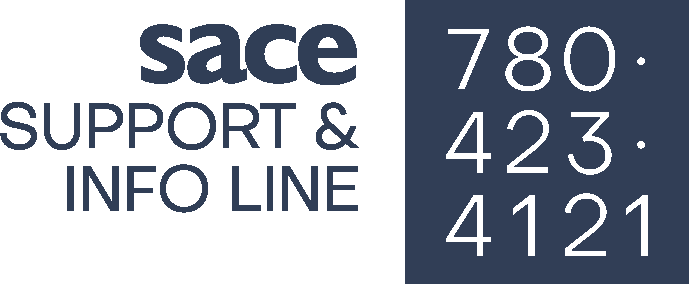Police and Court Support
Police and Court Support
Our program is designed to help people through the process, whether they are a counselling client at SACE or not.
Reporting
Sexual Abuse or Assault
We provide all the options a person can use to report sexual abuse or assault.
Reporting
Sexual Harrassment
This section provides information about the steps you can take to make a complaint about sexual harassment.
Police and Court Support Program
Making a police report or going to court can be confusing, scary, and triggering. Our Police and Court Support Program is designed to help people who have experienced sexual violence through this process, whether they are a counselling client at SACE or not.
The SACE Police and Court Support Program offers the following supports for adults and youth ages 16 and up:
- Information about reporting, the court process, and legal rights and responsibilities
- Assistance with forms
- Police interview accompaniment
- Help preparing for court
- Accompaniment to court proceedings
- Support with protection orders
- Advocacy
- Emotional support throughout the legal process
Our goal is to ensure that people have the information they need to decide whether to report, and to provide consistent specialized supports throughout the court process and after.
Email us at courtsupport@sace.ca to access all or part of these services.
When it comes to adults reporting sexual assault or abuse or pursuing charges, the choice is completely yours. There is no time limit, so you can take your time to make this decision. This section is intended to provide helpful information for those who have decided to report, and those who are still deciding.
Note: Sometimes reporting is not an option; it is required by law. This is the case for any person who is considered to be vulnerable, including:
- Children and youth (people who are under 18 years old)
- Adults who are included under the Persons in Care Act
- For all vulnerable persons, reporting is required even if you aren’t sure if they were sexually assaulted/abused
Below you will find information about what reporting options exist, and how to report.
Reporting Sexual Assault or Abuse
What Is Reporting?
Reporting means contacting police and telling an officer what happened. This is often done to begin an investigation that may lead to charges being laid against the person who caused harm.
To make a report, you will share details about yourself and what you experienced with the police. Please be aware that this can be a difficult process because the police will need to ask you many questions about your experiences including questions that may be sensitive or triggering. Once the police have collected your statement(s), they will conduct an investigation to gather additional evidence.
After the police have completed their investigation, they will determine whether they have Reasonable and Probable Grounds to lay a charge. Sometimes a police officer will seek the opinion of a Crown Prosecutor before making this decision.
If the police have Reasonable and Probable Grounds, they will lay a charge and the court process begins. If they do not have Reasonable and Probable Grounds, they will not lay charges and the person who caused harm will not go to court; however, the report will always remain on file.
If you do not want to go through the legal or court processes, you can still file a report to the police. This is called an “Information Only” report. The police do not investigate these reports, but they maintain a record of the sexual assault and you are able to request an investigation that may lead to charges at a later time.
Reasonable and Probable Grounds (RPG) is a threshold that must be met for an officer to lay a charge. It takes into account the evidence of a crime, as well as the officer’s interpretation of the evidence and how likely they think it is that the crime happened.
Whether charges are laid or not is not a reflection of the truth of your statement, and does not impact access to SACE services.
How Do I Report to the Edmonton Police Service (EPS)?
There are four options to pursue potential charges:
Call the Non-Emergency Police Line
You will speak with a dispatch officer, who will send a uniformed officer to speak with you in person.
Go To the Hospital
Ask to speak with a SART (Sexual Assault Response Team) nurse if the assault happened within the last 7 days.
Report Online
The Edmonton Police Service Online Police Reporting Service allows you to submit a sexual assault report immediately.
Go to The Police Station
You will report to the officer at the desk. You may be asked to write a witness statement while the officer starts the report.
We recommend reading “What you can expect when reporting a sexual assault” on the Edmonton Police Service website.
How Do I Report to The RCMP?
You have one option that may lead to charges:
Phone or Go Into Your Local RCMP Office
To pursue potential charges with the RCMP, you will need to call or go to your nearest location.
Reporting Sexual Harassment
If you feel that your employment, working conditions, prospects for promotions or earnings, living accommodations, or access to public services are being affected by sexual harassment, you have options. You can speak with your employer, who has a responsibility to address the issue. And if your employer doesn’t address the issue, you can file a complaint with the Alberta Human Rights Commission.
Because sexual harassment falls under human rights law and not the Criminal Code of Canada, complaints regarding sexual harassment must be reported to the Human Rights Commission. Each province has its own Human Rights Commission, so Alberta residents will contact the Alberta Human Rights Commission by calling either the Northern or Southern Confidential Inquiry Lines.

To learn about the reporting process, visit the Alberta Human Rights Commission website
What is Sexual Harassment?
To learn about the definition of sexual harassment, visit our Learn section.
In addition to the above services, the following resources may be helpful for people going to court:

How to Make a Complaint to the Department of Justice
if victim’s rights are infringed upon or denied


How to Apply for Victims of Crime Benefit Fund
Support is available if you have experienced physical or emotional harm as a result of a crime.

Victim Services
Help, financial assistance and restitution for victims of crime, and grants and training for victim services providers.

